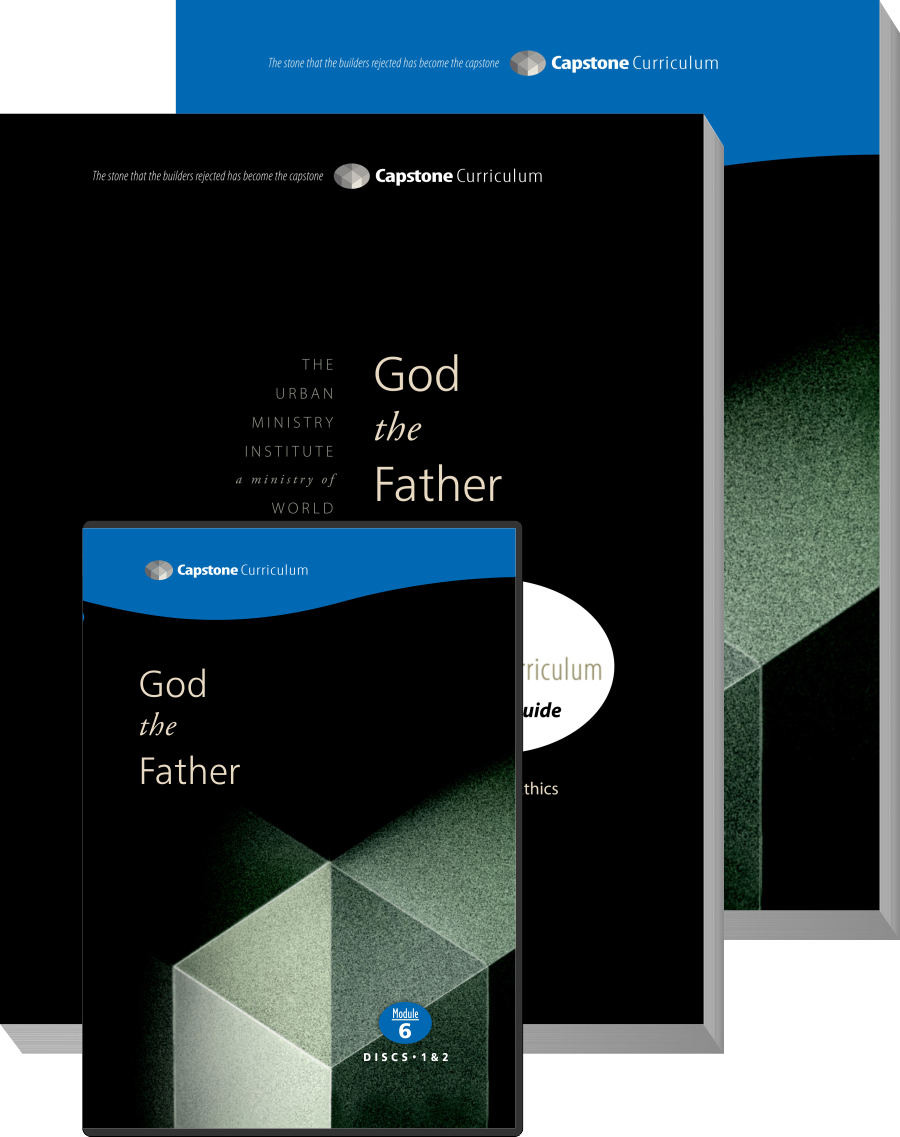 Module 6: God the Father
Module 6: God the Father
The study of the person of our God, the Father Almighty, is one of the most important and richest of all studies in the Word of God. It affects every part of our discipleship, worship, and ministry; truly, as our Lord Jesus said, “And this is eternal life, that they know you the only true God, and Jesus Christ whom you have sent,” (John 17.3).
This module covers in broad outline the systematic categories of the study of “theology proper.” We begin by outlining the concepts of general and special revelation, and carefully explore the importance of studying the doctrine of God in terms of God's immanence, i.e., his present and active involvement in creation, as well as his transcendence, God's infinite nature and unknowableness. We also examine God's supreme authority and providence over all creation and history, how the Father Almighty is sovereign over all, the source of all life, and the Sustainer of all through his Son, Jesus Christ. In addition, we will look at the biblical evidence for the Trinity, God's triune personhood, and finally discover God's marvelous goodness demonstrated in his moral attributes of his perfect moral purity, absolute integrity, and unbounded love.
Course Details
Lesson 1: Prolegomena
Lesson 2: God as the Creator
Lesson 3: The Triune God
Lesson 4: God as Father
Format
Mentor Guide: 307 page book
Student Workbook: 254 page book
DVD Set: approximately four hours of video
Title Page | Instructor | Copyright
Module Description
God the Father
Required Textbooks
The Capstone Curriculum
Capstone Curriculum is a 16-module training program, taught at a seminary level, which we specifically designed to serve as the most essential knowledge and skill learning necessary for effective urban ministry. Each module (course) comes with a Mentor’s Guide, a Student Workbook and two DVD’s (four hours of video).
![]() Each module also has required textbooks, and this graphic is linked to the reading assignments associated with those textbooks for that specific module.
Each module also has required textbooks, and this graphic is linked to the reading assignments associated with those textbooks for that specific module.
![]() Some modules have Suggested Readings that would enhance student learning. While these are not required assignments, they are included for further study if your students are interested.
Some modules have Suggested Readings that would enhance student learning. While these are not required assignments, they are included for further study if your students are interested.
![]() All of our Capstone Student Workbooks (English and Spanish) are available on Kindle and is a handy complement to your Capstone Students Softcover Workbook; the accessibility of the digital editions will be a lifetime resource for sermon preparation, Bible Study, and theological research. We are also seeking to make all of our required textbooks available on Kindle. If a book is available on Kindle, it will be linked to this icon in the book's description.
All of our Capstone Student Workbooks (English and Spanish) are available on Kindle and is a handy complement to your Capstone Students Softcover Workbook; the accessibility of the digital editions will be a lifetime resource for sermon preparation, Bible Study, and theological research. We are also seeking to make all of our required textbooks available on Kindle. If a book is available on Kindle, it will be linked to this icon in the book's description.
![]() A few textbooks are also available as audio books. The books that are will have this linked icon in its description as well.
A few textbooks are also available as audio books. The books that are will have this linked icon in its description as well.
![]() Two Capstone modules (Module 5: Bible Interpretation and Module 11: Practicing Christian Leadership) have reference texts that are phenomenal resources for any pastor or leader. This icon will alert you to those texts.
Two Capstone modules (Module 5: Bible Interpretation and Module 11: Practicing Christian Leadership) have reference texts that are phenomenal resources for any pastor or leader. This icon will alert you to those texts.
Reading Assignments
Reading Assignments
Each Capstone module has assigned textbooks which are read and discussed through the course. We encourage students to read, reflect upon, and respond to these with their professors, mentors, and fellow learners. Because of the fluidity of the texts (i.e., books going out of print), the required textbooks list will be different from what is listed in your Capstone Curriculum workbook. The textbooks list with each module is the OFFICIAL Capstone required textbook list.
![]()
Students: Part of our coursework requires that you purchase, read, and reflect upon the textbook(s) for the course. The assignment is to read each required textbook and write a precis (concise summary) of its main point, as you see it. Please summarize its major theme and argument, and then give your concise evaluation for each reading. Although the Student Workbook only shows space for two readings, the student must write a summary for each reading by using the back of the form. It is of utmost importance to us for our students to analyze a text, that is, to read it, understand its thesis (main point), articulate its argument in a respectful way (whether you agree with the author or not), and then respond as to why you agree or disagree with the thesis. This practice helps strengthen your ability to engage different opinions in a respectful way, and learn to listen to others and respond with clarity and respect. In this way, you learn to dialogue with and discuss with others whose beliefs are different than your own.
Mentors: The reading assignments below are keyed specifically to the lesson format of this module. Please note that, depending on how you are structuring your course sessions, you have complete flexibility to break up the reading assignments to match your actual class sessions. In other words, if you are running an eight week course, simply break up the reading assignments to match your sessions (see Appendix 8 in For the Next Generation, TUMI Mentor Manual for sample course schedule options). What is critical is that you focus on the lesson as the basic unit of teaching in your Capstone courses.
-
Lesson 1: Reading Assignments
By the conclusion of this lesson, you should have read the following:
Erickson, Introducing Christian Doctrine, 2nd Edition - Chapters 14-15; 3rd Edition - Chapters 13-14.
Packer, Knowing God, Part I.
Tozer, The Knowledge of the Holy: The Attributes of God: Their Meaning in the Christian Life, Chapters 1-7.
Dodd, Dictionary of Theological Terms in Simplified English: A Resource for English-Language Learners (please refer to the dictionary throughout this course as needed), -
Lesson 2: Reading Assignments
By the conclusion of this lesson, you should have read the following:
Erickson, Introducing Christian Doctrine, 2nd Edition - Chapters 10 & 12; 3rd Edition - Chapters 9 &11.
Packer, Knowing God, Part II.
Tozer, The Knowledge of the Holy: The Attributes of God: Their Meaning in the Christian Life, Chapters 8-15.
Dodd, Dictionary of Theological Terms in Simplified English: A Resource for English-Language Learners (please refer to the dictionary throughout this course as needed), -
Lesson 3: Reading Assignments
By the conclusion of this lesson, you should have read the following:
Erickson, Introducing Christian Doctrine, 2nd Edition - Chapters 11 & 16; 3rd Edition - Chapters 10 & 15.
Packer, Knowing God, Part III.
Tozer, The Knowledge of the Holy: The Attributes of God: Their Meaning in the Christian Life, Chapters 16-23.
Dodd, Dictionary of Theological Terms in Simplified English: A Resource for English-Language Learners (please refer to the dictionary throughout this course as needed),
- 1
Kindle
Capstone is also available on Kindle and is a handy complement to your Capstone Students Softcover Workbook; the accessibility of the digital editions will be a lifetime resource for sermon preparation, Bible Study, and theological research.
Go to TUMIStore
Return to Capstone Summary Page
